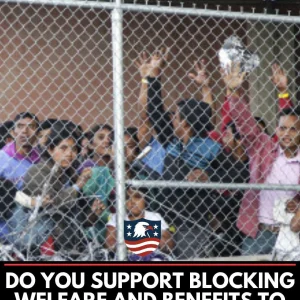In a move that’s igniting fury across the nation, Illinois Governor J.B. Pritzker has officially inked a groundbreaking—and highly divisive—law that mandates annual mental health screenings for all public school students from third through twelfth grade. Signed just weeks ago on July 31, 2025, at Chute Middle School in Evanston, this legislation positions Illinois as the pioneering state to enforce such widespread psychological evaluations, set to roll out statewide in the 2027-2028 school year. Proponents hail it as a vital step toward early detection of anxiety, depression, and other mental health issues plaguing today’s youth, but critics are sounding the alarm, warning of a slippery slope toward inaccurate diagnoses, the commodification of children’s well-being, squandered classroom time, and a golden opportunity for pharmaceutical giants to hook a new generation on meds.

The law, known as Senate Bill 1560, requires public schools to offer “age-appropriate” screenings designed to spot early signs of mental distress, such as trauma or emotional turmoil. According to state officials, the initiative stems from a broader push to expand children’s behavioral health transformation, building on existing efforts to address the youth mental health crisis exacerbated by the COVID-19 pandemic. Governor Pritzker himself emphasized during the signing ceremony that this measure will help identify issues before they escalate, potentially saving lives and fostering healthier futures for Illinois’ students. “We’re making sure that every child has the support they need,” Pritzker stated, underscoring the confidential nature of the process and the availability of opt-out options for parents. Yet, beneath this benevolent facade, a storm of opposition is brewing, with detractors arguing that the screenings could do more harm than good.
One of the primary concerns revolves around the potential inaccuracy of these assessments. Mental health screenings, especially for children as young as eight, are not foolproof. Experts point out that tools like questionnaires or brief evaluations can yield false positives, labeling normal childhood behaviors—such as occasional sadness or restlessness—as pathological conditions. This risk is amplified in a school setting, where overworked counselors might lack the nuanced training of licensed psychiatrists. “What happens when a kid has a bad day and gets flagged?” asks one concerned parent in online forums. Such missteps could stigmatize students unnecessarily, leading to unwarranted interventions and a lifetime of self-doubt. Moreover, the commercialization of mental health looms large in the debate. Critics fear that schools will partner with for-profit companies to administer these screenings, turning public education into a pipeline for private interests. Already, mental health apps and diagnostic firms are eyeing the lucrative market of youth psychology, with billions at stake. In Illinois, the state plans to develop procedures and tools by September 1, 2026, and provide them free to schools—contingent on funding—but skeptics worry this opens the door to biased instruments designed to funnel kids toward paid services.

Adding fuel to the fire is the issue of wasted educational resources. Implementing annual screenings for hundreds of thousands of students will demand significant time, staff, and funding—resources that could otherwise enhance core academics like math, science, or arts programs. Schools already strained by teacher shortages and budget cuts might see classrooms disrupted as students are pulled for evaluations, potentially during instructional hours. “This is just another bureaucratic hoop that diverts attention from real learning,” laments a Chicago-area educator on social media. With the screenings slated to begin in two years, districts are scrambling to prepare, raising questions about whether the benefits justify the logistical nightmare.
Perhaps the most explosive accusation leveled against the law is its alleged ties to Big Pharma and insurance companies. Vocal opponents, including conservative commentators and parent advocacy groups, claim the true agenda is to create a steady stream of young patients primed for prescription drugs. “The point of these annual screenings is to ensure they drug as many children as possible with psychoactive medications,” blasts one viral X post, echoing sentiments that Democrats are selling out to pharmaceutical lobbyists. They argue that early detections could lead to overdiagnosis of conditions like ADHD or anxiety, resulting in widespread use of antidepressants or stimulants—medications that generate massive profits for drug makers. Illinois’ move, they say, normalizes the medicalization of everyday emotions, turning schools into de facto clinics and eroding parental authority. While the law includes privacy safeguards and opt-outs, detractors insist these are insufficient, as data could still be shared with insurers, influencing coverage or premiums down the line.
Supporters counter these fears by highlighting the dire state of youth mental health. Statistics show alarming rises in teen suicide rates, with one in five high school students seriously considering it, according to national surveys. In Illinois alone, the pandemic amplified isolation and stress, leaving many kids without adequate support. Advocates like mental health organizations praise the law for destigmatizing therapy and providing equitable access, especially in underserved communities where professional help is scarce. “Early intervention saves lives,” argues a spokesperson from the Illinois Children’s Behavioral Health Transformation Initiative, noting that screenings will connect families to resources without mandatory treatment.

Yet, the backlash is palpable, spilling over into heated online debates and calls for repeal. Parents’ rights groups are mobilizing, decrying government overreach into family matters. “This is the state playing doctor with our kids,” fumes one activist, warning of a dystopian future where psychological profiles dictate opportunities. Lawmakers from both sides are weighing in; some Republicans vow to challenge the mandate, while progressive Democrats defend it as progressive policy. As Illinois blazes this trail, other states are watching closely—could this become a national trend, or will the controversies derail it?
The law’s implementation details remain in flux, with a task force tasked to refine the process. But one thing is clear: this initiative has cracked open a Pandora’s box of ethical dilemmas. Is it a compassionate safeguard or a dangerous intrusion? As families grapple with the implications, the conversation is far from over, promising more fireworks in the months ahead. With youth mental health at a crossroads, Illinois’ bold step could either heal a generation or fracture trust in public institutions forever.






